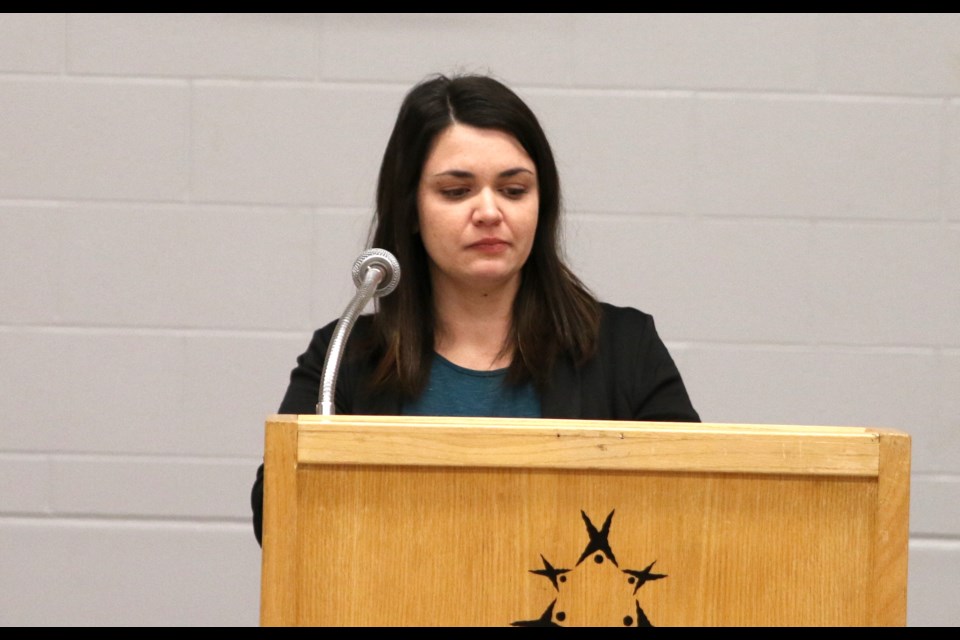THUNDER BAY - Fighting back tears, Krista Smith shared her frustration that her four-year-old son, Conner, who was diagnosed with autism two years ago, will not be given the same opportunities as everyone else in the province.
“Our son is four and he is non-verbal. I don’t know if he will ever have a chance to speak,” she said. “He deserves to have every opportunity that everyone has and it’s just been taken away from him. We won’t be able to afford the services on our own. It’s out of our reach. It’s out of everyone’s reach.”
Smith was one of more than 40 people at a town hall meeting on Saturday hosted by NDP Thunder Bay-Atikokan MPP Judith Monteith-Farrell to provide parents and families caring for a person with autism an opportunity to express concerns over recent changes by the Ford government to autism services.
Last month, the Ford government announced plans to clear the waitlist of children waiting for government-funded treatment and provide direct funding to families. The new program would provide $20,000 a year to families with children under six-years-old requiring treatment, while children six to 18-years-old would receive $5,000 a year.
“These therapies are very expensive and parents will not be able to afford them,” Monteith-Farrell said.
The $5,000 per year breaks down to approximately $71 per week, which Diane Walker, CEO of Children’s Centre Thunder Bay, says just doesn’t cut it with some treatment options requiring more than $50,000.
“If you make more than $55,000, which is barely enough to live on if you add housing and all the other things you have to do for your children and family, there’s absolutely no way that family can support the kids and provide the kind of treatment and intervention kids need to be successful,” she said. “That’s the really sad part of this.”
“Would you fund $71 a week for a kid with cancer or diabetes? Where do we get off thinking like that?”
Walker and said the program as it existed before was not without problems and Monteith-Farrel said she was speaking with families before the change and many had concerns with the long waitlists.
“People were looking for maybe alternative therapies that they thought could be helpful,” she said. “They were advocating for the change, but when this came in, they saw it as a disaster for children.”
The new program is expected to take effect on Apr. 1, but according to Walker, the ministry has indicated that eliminating the waitlist will take 18 months.
“The system has struggled,” Walker said. “I’ve known it for 15 or 20 years. It reminds me of never solving the root problem, which is getting the right services to kids at the right time, not regardless of cost, but a balanced consideration for costs. This is not going to solve the problem.”
During the meeting, several family members voiced their concerns about the recent changes, as well as a lack of consultations in Northern Ontario and a lack of services, with some calling the region a ‘service desert.’
“In Northern Ontario, we are limited by geography and now we are going to be limited by the money that is going to be available,” Monteith-Farrell said.
A large demonstration was held in Southern Ontario last week to protest the new changes and Monteith-Farrell said families are passionate about giving their children every opportunity possible.
“We have new parents who are joining this group who are trying to get the services their children need,” she said. “I think what their argument is these children deserve to reach their full potential and as citizens of Ontario.”
Smith added that while there may be fewer voices in the North expressing concerns, they are no less quiet and she hopes more people will talk and educate themselves about how serious these changes will be.
“I am here because we don’t approve of the new program and I want my voice to be heard,” she said. “They are basically killing chances for our kids and it’s really disheartening to see that.”
